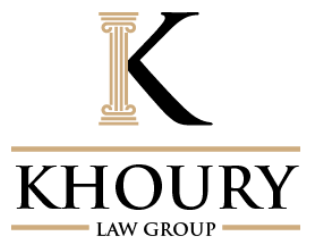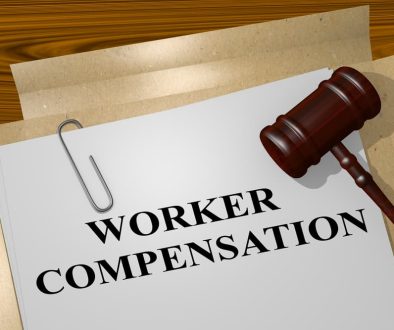Who Pays for Legal Fees in a Civil Litigation Case?
In a civil litigation case, one of the common questions clients have is about the cost of legal fees and court expenses. After all, litigation can be expensive, and the outcome of the case can determine who ultimately pays for these costs. So, how does a judge decide who will pay court costs and legal fees in a civil litigation case? The answer is more nuanced than it might appear, and there are several factors at play.
Understanding Court Costs and Legal Fees
Before diving into how the judge makes this decision, it’s important to distinguish between court costs and legal fees:
- Court Costs: These are the fees associated with the legal process itself, such as filing fees, costs of serving documents, costs of obtaining evidence, and administrative expenses. Court costs are typically fixed amounts determined by the court.
- Legal Fees: These are the fees you pay to your attorney for their time and expertise in handling your case. Fees can be hourly or based on a contingency fee arrangement, where the lawyer takes a percentage of the settlement or judgment if you win.
Now, let’s explore how a judge might determine who will be responsible for these costs.
1. The “American Rule” and Its Exceptions
In the United States, the general rule is known as the American Rule, which states that each party in a lawsuit is responsible for paying their own attorney’s fees, regardless of the outcome. This means that even if you win your case, you typically can’t force the losing party to pay your legal fees, unless an exception applies. However, this rule does not apply universally, and there are situations in which a judge may order the losing party to pay the prevailing party’s fees or court costs.
2. Specific Statutes and Contracts
In certain cases, statutes or contracts between the parties may explicitly require one party to pay the other’s legal fees. For example:
- Statutory Exceptions: Some laws allow for the prevailing party to recover legal fees. For instance, in cases involving violations of civil rights, consumer protection laws, or employment discrimination, statutes may provide that the losing party pays the prevailing party’s legal costs.
- Contractual Agreements: If the parties involved in the dispute have a contract, it might contain a fee-shifting provision. This provision requires the losing party to pay the legal fees of the winning party. In commercial disputes, this is relatively common, as businesses may include clauses in their contracts to allocate the responsibility for legal fees in case of litigation.
3. The Judge’s Discretion
Even when there’s no statute or contract provision that governs the payment of legal fees, a judge has the discretion to award costs and legal fees in certain circumstances. Some of the factors a judge may consider include:
- Bad Faith or Frivolous Litigation: If the judge believes that one party filed the lawsuit or defense in bad faith (i.e., with the intent to harass or without a legitimate legal basis), the judge may order the losing party to pay the other side’s legal fees. Similarly, if a party is found to be engaging in frivolous litigation, meaning their claims or defenses are entirely without merit, they could be ordered to pay the other party’s costs.
- Unreasonable Conduct: If one party is found to have acted in an unreasonable manner during the course of the litigation—such as failing to comply with court orders, causing unnecessary delays, or making unjustified demands—this may lead the judge to award costs to the other side. A judge might penalize the offending party by ordering them to pay the legal fees of the party who acted reasonably.
- Settlement Offers: If one party makes a reasonable settlement offer, and the other party rejects it, the judge may consider this in determining who should pay legal fees. For example, if the rejecting party ends up losing the case and their position was not substantially stronger than the offer, the judge might order them to pay the prevailing party’s legal fees.
4. Court Rules and Local Procedures
Many courts have specific rules or local procedures that may affect the awarding of costs and fees. Some courts may follow a more generous approach to awarding legal fees, while others may be more restrictive. A judge will typically consider these rules when deciding whether to grant a motion for legal fees.
5. Types of Fees a Judge May Award
If a judge decides to award fees, it could include various types of costs:
- Court Costs: This includes the filing fees, the cost of serving documents, and fees for obtaining transcripts or evidence.
- Attorney’s Fees: This could be a specific amount of the winning party’s legal costs, either based on actual hours worked or based on a reasonable estimate.
- Expert Witness Fees: If expert witnesses were used during the case, a judge may order the losing party to pay those fees as well.
- Other Litigation Costs: This could include costs for depositions, document copying, travel expenses, and other necessary elements of litigation.
6. The Impact of Settlement or Judgment
If the case is resolved through settlement before trial, the parties may negotiate who will pay the legal fees and costs as part of the settlement agreement. This is typically done without the need for judicial intervention. However, if the case goes to trial and the judge issues a judgment, the decision on who will pay the fees will be made based on the legal rules, the conduct of the parties during the litigation, and any applicable statutes or contractual agreements.
What Happens if You’re Ordered to Pay Fees?
If the judge orders you to pay the other party’s legal fees and court costs, it’s essential to understand the financial implications. You may be required to pay:
- The full amount of the other party’s fees: This could significantly increase the overall cost of the lawsuit.
- An installment plan: Depending on the circumstances, you may be allowed to pay in installments rather than a lump sum.
- Post-judgment collections: If you fail to pay, the other party may take further legal action to collect the fees.
While the general rule is that each party pays their own legal fees, there are multiple exceptions in civil litigation cases. The judge’s decision to award court costs or legal fees is influenced by statutes, contractual agreements, the conduct of the parties, and other factors like the reasonableness of the settlement offers and the actions taken during the case.
If you’re involved in a civil litigation case, it’s essential to understand the potential costs and work with your attorney to develop a strategy that minimizes your exposure to additional financial burdens.
Need legal help? In California, navigating legal challenges, whether they involve personal injury, workers’ compensation, criminal defense or civil litigation, can be overwhelming. Khoury Law Group is here to provide the critical legal support you need. As a leading advocate for individuals facing legal battles, our experienced attorneys understand the complexities of the legal system and are committed to fighting for your best interests. With personalized legal strategies and compassionate support, we are dedicated to achieving the justice and compensation you deserve.
CONTACT US FOR HELP. Call us at (888) 354-6879 or fill out the form on our Contact page.





